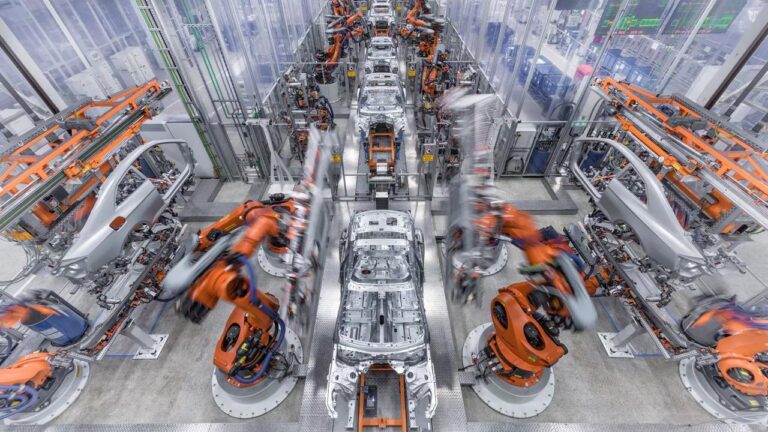Audi employees in Germany have voiced strong reservations over the company’s plans to build a new factory in the United States, emphasizing that such a move cannot proceed without securing critical commitments. According to reports, workers are urging Audi’s management to address key concerns related to job security, labor conditions, and production standards before expanding operations overseas. This development highlights ongoing tensions as the German automaker weighs its global manufacturing strategy amidst competitive pressures and shifting market demands.
Audi Employees Demand Clear Environmental Commitments Before Expansion to the US
Employees at Audi’s German headquarters have voiced strong concerns over the company’s planned expansion into the United States. They emphasize that before any new factory is established, Audi must commit to robust environmental standards that align with global sustainability goals. Workers are demanding transparent strategies addressing carbon neutrality, renewable energy integration, and waste reduction at the new site. Their stance underlines the growing pressure from within the automotive industry to prioritize ecological responsibility alongside economic growth.
The demands from Audi staff include:
- Public disclosure of environmental impact assessments
- Implementation of cutting-edge clean energy technologies
- Firm commitments to zero-emission manufacturing processes
- Investment in local community and biodiversity conservation programs
| Key Environmental Commitment | Proposed Target |
|---|---|
| Carbon Emissions Reduction | 80% by 2030 |
| Renewable Energy Usage | 100% by 2028 |
| Water Consumption | 50% reduction by 2025 |
| Waste Recycling Rate | 90% by 2027 |
The internal push for clear, measurable environmental commitments reflects a broader trend in the automotive sector where sustainability has become a top priority. Audi’s workforce insists the company take responsibility not just as an innovator in automotive technology but also as a guardian of the planet’s future.
Workforce Voices Concerns Over Job Security and Local Industry Impact
Audi’s German workforce has voiced profound apprehensions about the company’s plans to establish a new factory in the United States. Employees emphasize that such a move could threaten job security at home and disrupt the delicate balance of the local automotive ecosystem. Unions have urged the management to commit to transparent strategies that prioritize existing German plants, insisting that investment abroad should not come at the expense of the domestic workforce.
Key issues raised by the employees include:
- Preservation of Jobs: Guarantees that no layoffs will result from the overseas expansion.
- Investment in Local Infrastructure: Continuous modernization and support of German manufacturing facilities.
- Alignment with Company Values: Ensuring that global growth maintains Audi’s commitment to quality and sustainability standards.
| Factor | Concerns | Company Expected Actions |
|---|---|---|
| Job Security | Potential layoffs or reduced hours in Germany | Firm commitments to maintain current workforce levels |
| Industry Reputation | Risk of local industry weakening | Investment in innovation and training programs |
| Production Quality | Concerns about maintaining German manufacturing standards | Quality controls mirroring German plants abroad |
Calls for Transparent Dialogue and Sustainable Practices in Audi’s American Factory Plans
Workers at Audi’s German plants have voiced serious concerns about the company’s proposed expansion into the American market. They are urging the management to adopt a more transparent approach and to prioritize environmental and social sustainability before breaking ground on the new factory. According to employee representatives, the plant’s success should hinge on clear communication channels that include feedback loops from both the workforce and local communities in the U.S., ensuring that corporate strategies align with ethical responsibilities.
Among the critical demands are:
- Environmental impact assessments conducted with independent oversight
- Commitments to fair labor practices and union involvement
- Investment in renewable energy solutions throughout the production process
- A transparent timeline made publicly accessible to track progress and concerns
Employee groups warn that without these foundational pillars, Audi risks not only reputational damage but also long-term challenges related to social license to operate in the competitive American manufacturing landscape.
| Priority | Requested Action | Expected Outcome |
|---|---|---|
| Transparency | Public progress reports | Trusted stakeholder relationships |
| Sustainability | Green energy integration | Lower carbon footprint |
| Labor Rights | Union collaboration | Stable workforce |
To Wrap It Up
As Audi weighs its plans for expanding manufacturing operations into the United States, the concerns voiced by its German workforce underscore the complexities of global automotive production. Balancing corporate ambitions with employee expectations remains a critical challenge for the automaker. How Audi navigates these internal dynamics will be closely watched by industry stakeholders and could set a precedent for future cross-border investments in the automotive sector.




